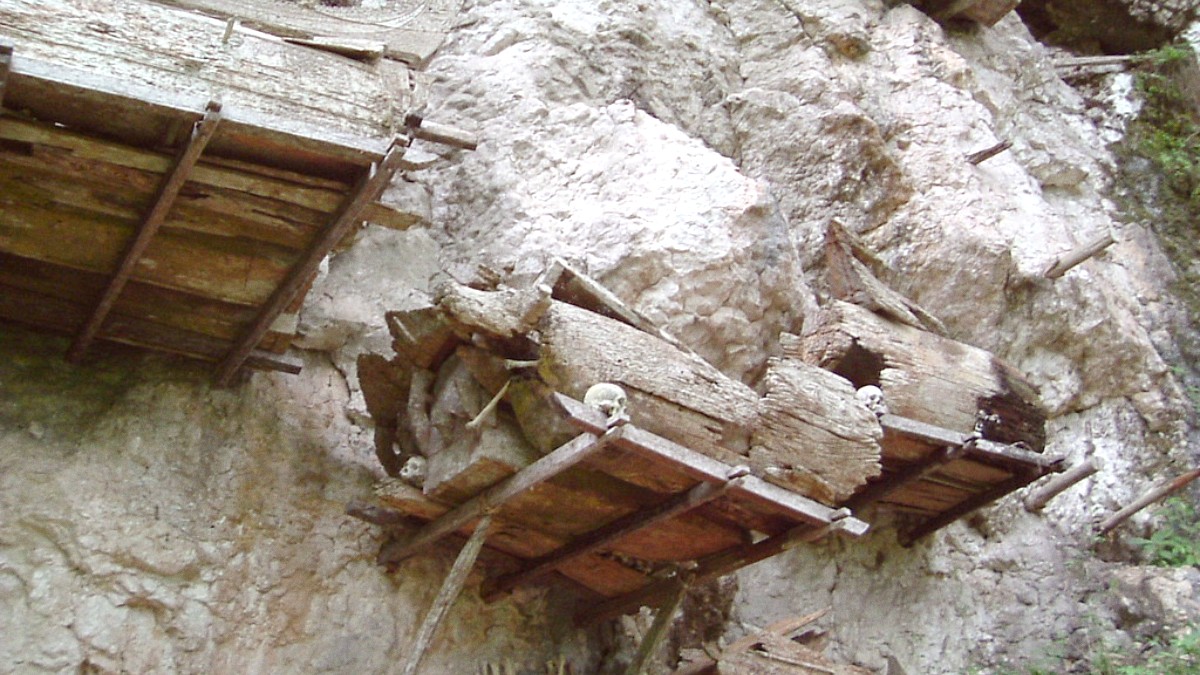
Sulawesi, Indonesia
No specific national parks exist within Tana Toraja. However, the cultural landscape itself, with its rice paddies and traditional forests, remains preserved through local practices.
Waste management can pose a challenge. Littering is common in some areas. Recycling infrastructure is limited. Consider sustainable options from Package Free Shop.
Tana Toraja receives ample rainfall. Sustainable water use remains important, specifically during drier months. Be mindful of your water consumption at your accommodation.
Local communities practice land management, contributing to a sustainable agricultural environment.
Local communities practice land management, including rice and coffee cultivation.
Direct carbon offset options are not available locally in Tana Toraja. Travelers can choose to offset emissions.
Some guesthouses might adopt basic eco-friendly practices, like solar water heaters or sourcing local produce.
When choosing tour operators, select those who demonstrate respect for local culture and the environment.
Minimize your plastic use by carrying a reusable water bottle. Avoid single-use plastics whenever possible. Dispose of waste properly, even if carrying it to a suitable bin.
Find sustainable outdoor gear.When engaging with local communities, demonstrate courtesy. Cultural sensitivity supports positive interactions and avoids misunderstandings. Learning basic phrases is a good practice.
Support conservation efforts.Hands holding a reusable water bottle and a reusable shopping bag. This shows plastic waste reduction.
Cultural sensitivity is paramount for a rewarding visit to Tana Toraja. It shapes local interactions.
The Torajan people actively preserve their unique culture through various ongoing practices.
Interacting with locals and observing cultural events merits thoughtful consideration of local customs.
Be mindful of privacy. Avoid overly close-up or intrusive shots without explicit consent. Respect any requests not to photograph.
Remember that you observe deeply personal and sacred rituals, not a performance. Maintain discretion.
Always seek explicit consent, especially when photographing individuals or intimate cultural moments.
Adhere to all guidance regarding sacred objects or rituals. Certain areas may be off-limits for photography.
A traveler respectfully asks a local person for permission to take a photo. This action is a good practice.
Responsible travel ensures tourism positively impacts the local economy and communities.
Staying in locally owned guesthouses and homestays directly supports local families. This keeps tourism revenue within the community.
When shopping for souvenirs, products where artisans receive a fair price contribute to their sustainable income.
Dining at local Warungs and restaurants provides an authentic culinary experience and supports small businesses.
understand exploitation and avoid harmful practices. This protects vulnerable individuals and communities.
If you wish to contribute financially, do so through established local NGOs or directly to community leaders for specific, verifiable projects. This ensures your contribution has a lasting, positive impact.
A woman sells traditional handicrafts at a market stall. This represents direct support for local livelihoods.